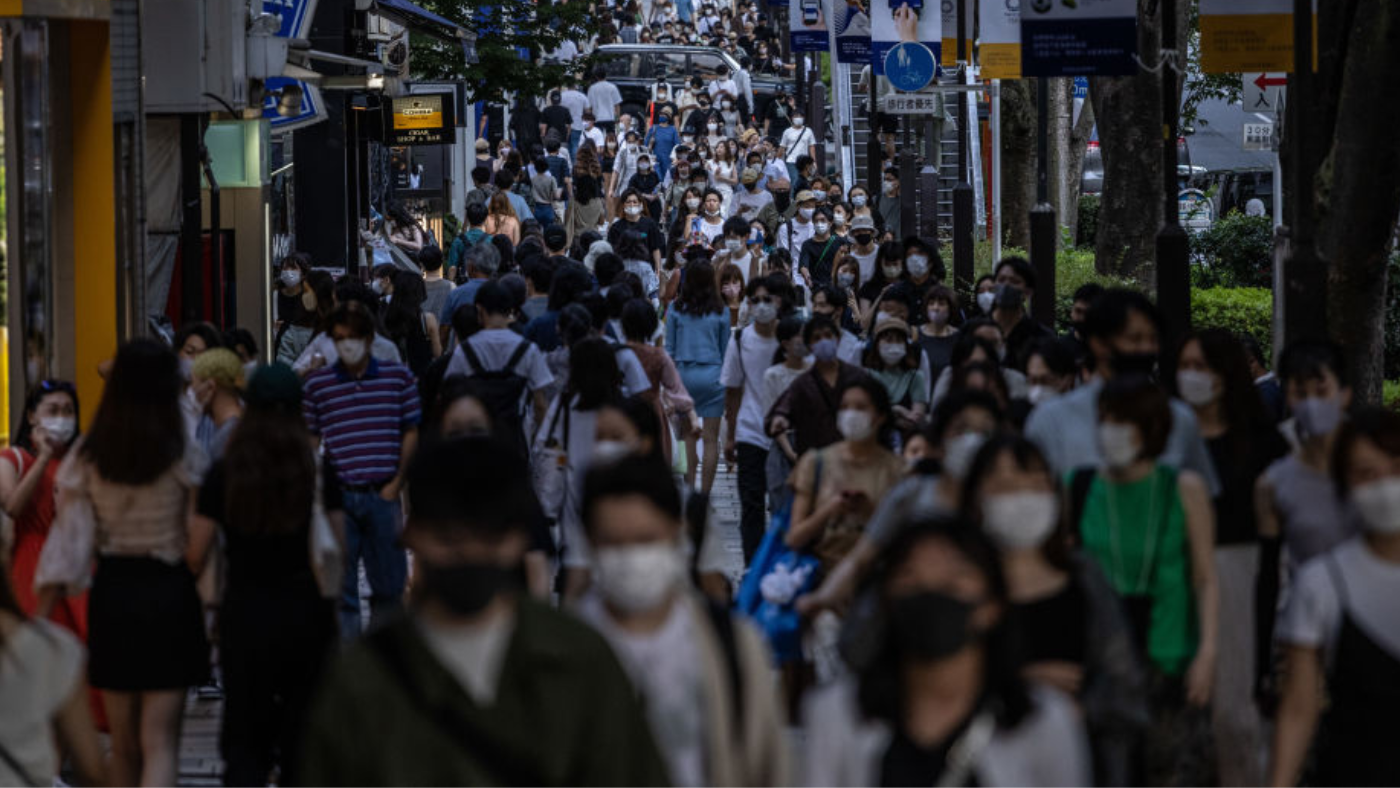Japan’s million-yen idea to tackle demographic decline
Government to triple financial subsidy to tempt families away from Tokyo

A free daily email with the biggest news stories of the day – and the best features from TheWeek.com
You are now subscribed
Your newsletter sign-up was successful
Japan’s government will pay families three times more to leave Tokyo and relocate to less densely populated regions of the country.
Since the 2019 fiscal year, parents have been able to apply for a subsidy of 300,000 yen (£1,906) per child for moving out of the capital. That amount is now set to increase to up to one million yen (£6,356) when the financial year begins in April.
“Officials hope the generous sums” will motivate households with children under 18 years old “to revitalise regions and ease pressure on space and public services in greater Tokyo”, said The Guardian’s Tokyo correspondent Justin McCurry.
The Week
Escape your echo chamber. Get the facts behind the news, plus analysis from multiple perspectives.

Sign up for The Week's Free Newsletters
From our morning news briefing to a weekly Good News Newsletter, get the best of The Week delivered directly to your inbox.
From our morning news briefing to a weekly Good News Newsletter, get the best of The Week delivered directly to your inbox.
But “the scheme has struggled to capture the public imagination” since it first launched, said McCurry.
Disproportionate demographic decline
The Japanese government’s goal is to “reverse decades of demographic decline, economic migration and the lure of the world’s biggest metropolis”, said Leo Lewis, the Financial Times’s (FT) Asia business editor.
Tokyo has become “the prime magnet for economic activity”, attracting younger workers, as the country’s “shrinking and ageing population” has “disproportionately hit the regions beyond Tokyo, Osaka and a handful of other major cities”, said Lewis.
Rural towns “have been hollowed out” and businesses have been “starved of customers and available staff”, said Lewis. It’s estimated that by 2023, the “glut of empty homes in Japan” will reach around ten million.
A free daily email with the biggest news stories of the day – and the best features from TheWeek.com
The new plans are being introduced to help rectify this disparity. To receive the subsidy, families will need to “declare their intention” to relocate for at least five years, said Nikkei Asia – and they will be required to return the sum if they leave before that.
Movers will also receive one million yen per household if they gain employment at a small to midsize local business, if they continue their previous employment remotely, or they open a new business in their new region. A couple with two children could therefore receive up to three million yen, with “no income test” required, said Nikkei Asia.
‘Scepticism’
Since 2019, uptake of the relocation subsidy scheme has been somewhat slow. In the first fiscal year of the programme, 71 families received the support, according to Nikkei Asia, rising to 1,184 in 2021. Proportionally, the number of people who have moved to rural areas “amounts to about 0.006% of the 38m population of greater Tokyo”, said the FT’s Lewis.
There are hopes that the new financial offer could spark more migration from Tokyo. According to Nikkei, the government hopes to raise the “number of movers” to 10,000 people in 2027.
The new offer has been met with “scepticism”, said Lewis. But the government plans to develop rural areas “to make life easier” for people who relocate from Tokyo and other major cities. That includes almost doubling the number of local governments “with official satellite offices” by 2027, said Nikkei, as well as providing further funding for digital technologies including remote healthcare and self-driving buses.
On the websites of municipalities looking to “tempt families to relocate” are a combination of “sales pitches” for regions’ “rural charms” and “revealing honesty” about their declining population, said the FT’s Lewis. State-owned broadcaster NHK has “further assisted” the rural regions’ cause, “heavily” promoting the prospect of relocation.
The plans come as the Japanese government “worries over” the country’s “below-replacement-level birth rate”, said Lewis. This “demographic reality” has proven “stubbornly resistant to a succession of efforts to encourage the creation of larger families” in recent decades.
Julia O'Driscoll is the engagement editor. She covers UK and world news, as well as writing lifestyle and travel features. She regularly appears on “The Week Unwrapped” podcast, and hosted The Week's short-form documentary podcast, “The Overview”. Julia was previously the content and social media editor at sustainability consultancy Eco-Age, where she interviewed prominent voices in sustainable fashion and climate movements. She has a master's in liberal arts from Bristol University, and spent a year studying at Charles University in Prague.